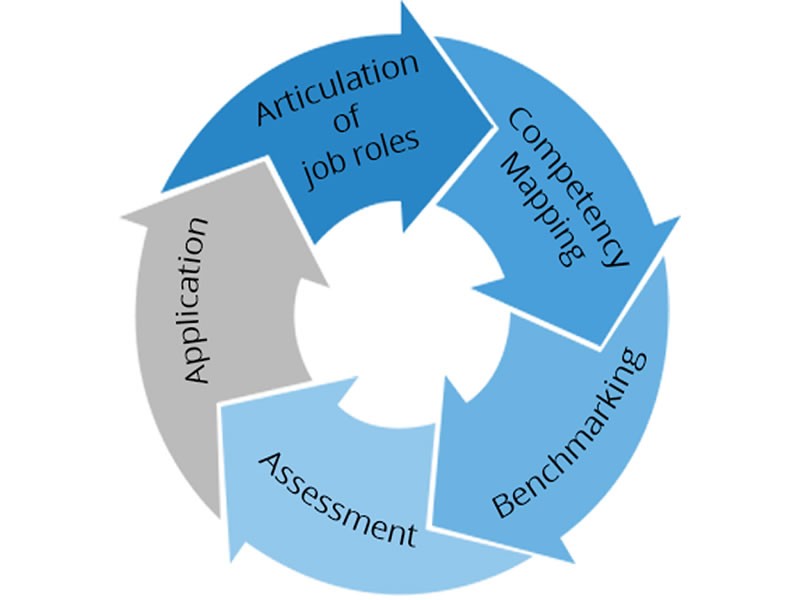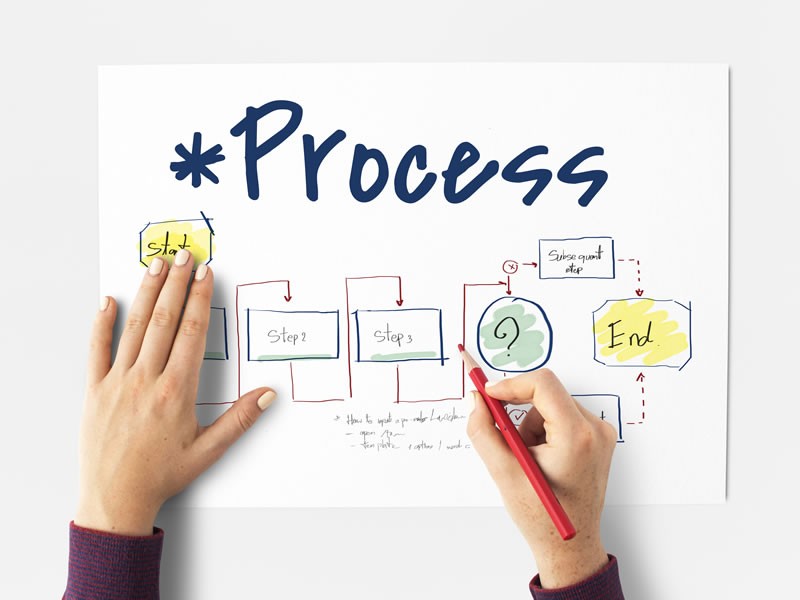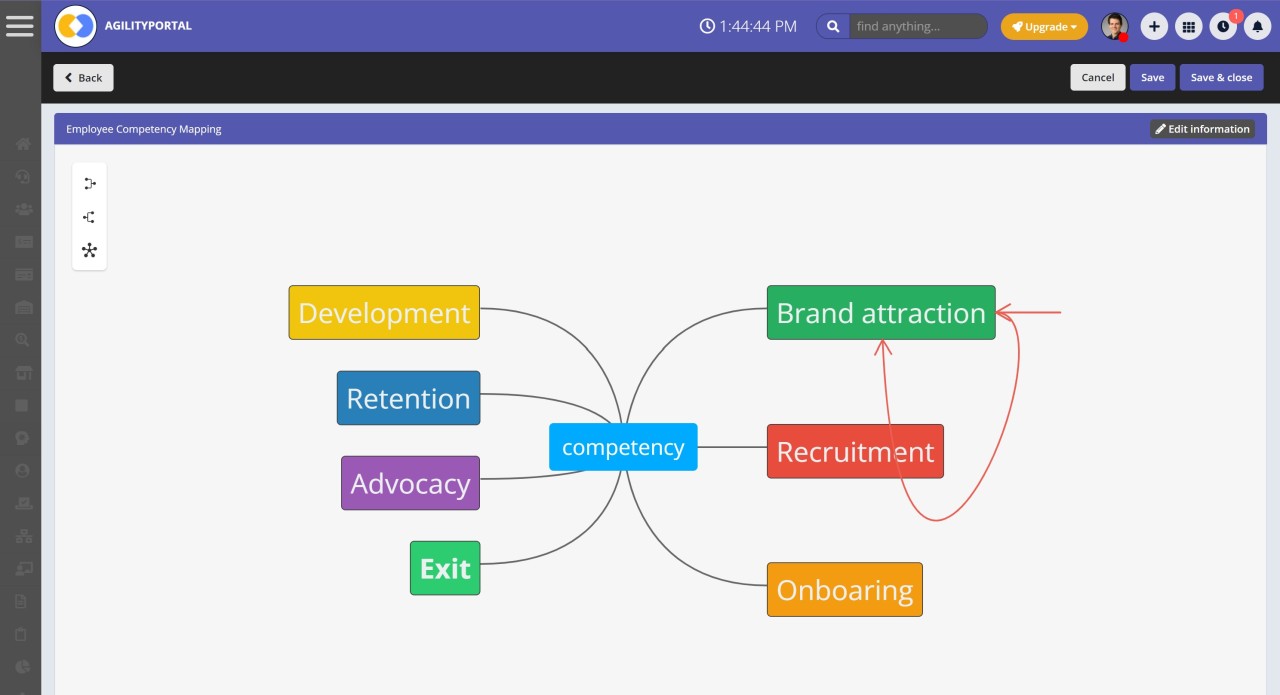Insight Blog
Agility’s perspectives on transforming the employee's experience throughout remote transformation using connected enterprise tools.
8 minutes reading time
(1549 words)
Competency Mapping & Assessment – A Comprehensive Guide
Competency mapping is a process of identifying key competencies for an organization, the jobs and functions within it. Lets dig deeper on this subject.
Are you aware of ALL of their skills when employing new staff, or only a portion of them?
Most companies, in fact, link their employees with the talents specified in the job description for which they were employed. Without a doubt, even small businesses have severe challenges in tracking staff abilities. However, there is a simple approach to keep track of staff talents and how they develop. It's referred to as competency mapping.
Competency mapping provides insight into what your personnel can and cannot do, which may be used to achieve a variety of objectives. We'll look at what competency mapping is, how it may aid individuals and companies, and how you can do it in this post.
What is competency mapping?
Competency mapping is a mechanism for measuring staff competencies in a systematic and reproducible manner. One of the key objectives is to become aware of the organization's present skill inventory and to identify existing talent gaps.
As a result, competency mapping can be applied to a variety of roles. Managers, HR professionals, team leads, and, of course, employees use the data obtained during the competency mapping process.
From simple spreadsheets to competency mapping software, data from competency mapping can be saved and presented in a variety of ways.
In terms of conceptualizing important plans for companies to survive and outperform in the competitive environment, the corporate world is seeing a transformative transition. Obtaining a set of competencies can be a competitive advantage in tumultuous times.
As a result, the importance of pinpointing, analyzing, and cultivating important talents for organizational performance cannot be overstated. Consequently, you cannot ignore competency mapping if you want to achieve something big.
Competency Mapping & Assessment
Assessment is the process of obtaining data from a variety of sources in order to have a better knowledge of people. The assessment method makes use of valid and reliable standardized assessment tools. In the sphere of competency mapping format, the range of evaluation instruments and their applications is broad.
The importance of assessment in the competency mapping process has been demonstrated, as it is on this basis that an organization may define the extent of training and development for its personnel, as well as their subsequent job performance. A competent employee is a high-performing employee in a company. If there is a gap between the current and expected performance of employees, training can help them become more competent and, as a result, improve their performance. All of these aspects have an impact on the ultimate goal of the company, which is a success.
Competency Mapping Questionnaire for Employees
Users fill out and return questionnaires, and you can use them for mapping the competencies. You begin by crafting product-related inquiries based on the sort of information you require. More information on creating effective questions can be found in the questionnaire sources. Depending on the questions asked in the questionnaire, this strategy can be employed at any stage of growth. You can use questionnaires after dispatching the products to gauge customer satisfaction. Usability concerns that should have been caught in-house before the product was introduced to the market are frequently identified by such questionnaires. Types of questionnaires used in competency mapping:
- -Common metric questionnaire
- -Functional job analysis
- -Multipurpose occupational system analysis inventory
- -Occupational analysis inventory
- -Position analysis questionnaire
- -Work profiling systems
Competency Mapping Tools
Competency Mapping is a method of identifying critical competencies for an organization or profession and implementing them into the various processes. AgilityPortals intranet software mapping tool can provide a simple interface for creating competency diagrams. Competency mapping tools are listed below:
- Questionnaires for competency mapping (discussed above)
- Critical incident techniques
- Assessment center
- Interviews for competency mapping
- Psychometric tests
It is hard to analyze all of the skills needed to complete the work criteria. However, the experts have proposed various methods, and some of them have shown great results. These strategies have aided managers in identifying, reinforcing, and developing these competencies for the growth of the organization and its members a considerable number. Some significant techniques for competency mapping are discussed below.
Critical incident techniques
It's impossible to characterize a significant incident other than to suggest that it can affect a system's growth and decay. Examining what the concept does might be one method to comprehend it. Despite various differences in critical incident gathering and analysis procedures, experts agree that the critical incidents technique can be described as a set of procedures for systematically identifying behaviors that contribute to the success or failure of individuals or organizations in specific situations. First and foremost, for each employee, a list of acceptable and unacceptable on-the-work behavior is compiled. A checklist of good and bad behavior can be generated with the help of a panel of judges.
Users can easily notice major incidents caused by usability issues and design faults in the user interface in the real world of task execution. In a usability-oriented setting, critical incident identification is likely the single most significant type of information connected with task performance. The criteria for a successful application of critical incident technique are as follows:
- The data is based on critical real-life situations that occur during the execution of a task.
- All of the tasks are completed by genuine people.
- All of the users are working in their regular environment.
- Data is collected in real-world scenarios rather than experimental conditions.
- Self-reporting: a report by the user after a significant event has occurred.
- Cut off the connection between the evaluator and the user during the event description.
- The user can obtain high-quality data at a minimal cost.
Assessment center
Assessment centers are not a place where assessment is done. It is a process that aids in determining an employee's capability as a "fit" or suitability for a given sort of work or job role. Different aspects of the job are replicated in the form of verified test series, which is an important component of assessment centers. Candidates are expected to complete a series of job-role-specific exams in order to identify whether their core skills line up with the competencies needed to complete the job.
Use of interviews for competency mapping
Almost every company employs an interview in some form or another as part of their competency mapping process. Huge amounts of research into interviews have been done, and various books have been produced on the subject. However, some guidelines should be followed while using an interview for competency mapping.
The interview is a two-way conversation between the interviewer and the applicant. When used correctly, it may be a powerful tool for obtaining accurate information and gaining access to stuff that would otherwise be unavailable. If the interview is not conducted properly, it might become a source of prejudice, blocking or distorting communication flow.
Psychometric tests
Psychometric testing is used by many firms as part of their hiring process. Some people have a natural and understandable fear of the unknown when it comes to this prospect.
Aptitude tests are used to measure an individual's ability to learn a specific skill or knowledge. Individuals' critical and analytical thinking abilities are assessed through reasoning tests. Personality testing provides a description of the distinctive features and characteristics that drive the employee's behavior. Achievement tests assist in measuring the amount of expertise an individual has reached in a certain subject. Aside from this, a competency mapping rating scale can be employed as part of the evaluation process.
Application of Competency Mapping
The process of defining the precise abilities and behaviors needed to perform well in a precise position or organization is known as competency mapping. Competency maps are frequently used for a variety of purposes, including job appraisal, project planning, performance management, job analysis, and individual development plans.
Evaluation of jobs
A simple job evaluation can be made by examining the key abilities required to accomplish the job. It might assist in allocating current or new resources to the specific job.
Planning a project
The competency mapping technique makes it simple to determine which resources in the project can do important activities, which aids in project planning.
Managing performance
A competency mapping process leads to the creation of a competency framework. It aids in the allocation of desired job proficiency vs. current job proficiency. Performance management can be carried out smoothly by assessing any shortcomings.
Job analysis
A clear roadmap for succession planning can be built by analyzing the competencies required for a leadership job and mapping them to the competency demonstrated by possible leaders.
Any developmental needs can also be determined by comparing an individual's present proficiency level to the required proficiency level for the profession.
Recruiting new employees
Organizations can use the most relevant resources while assisting in all stages of the recruitment process by identifying critical competencies required to accomplish the job and implementing a competency-based interviewing procedure.
Conclusion
Many management guides exist that try to explain the strategy, team building, and culture in order to build successful organizations. However, competency mapping is mostly ignored, but it is also important for an organization's success. It can help you to manage employees, improve training efficiency, and enhance resource allocation.
Categories
Blog
(2698)
Business Management
(331)
Employee Engagement
(213)
Digital Transformation
(182)
Growth
(122)
Intranets
(120)
Remote Work
(61)
Sales
(48)
Collaboration
(41)
Culture
(29)
Project management
(29)
Customer Experience
(26)
Knowledge Management
(21)
Leadership
(20)
Comparisons
(8)
News
(1)
Ready to learn more? 👍
One platform to optimize, manage and track all of your teams. Your new digital workplace is a click away. 🚀
Free for 14 days, no credit card required.














